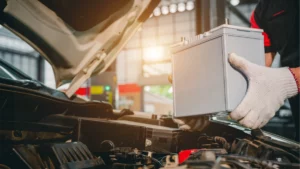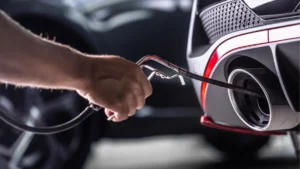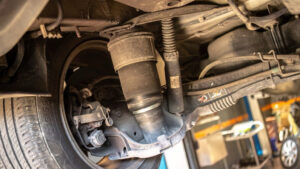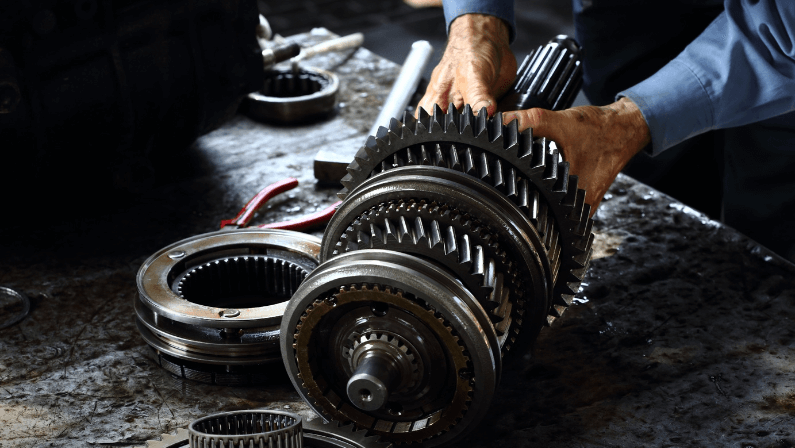
Facing transmission issues in your vehicle can be a daunting challenge, especially in a bustling city like Houston. It’s a critical component responsible for translating your engine’s power into motion, and when it requires attention, you want to ensure it’s in capable hands.
Certified transmission shops are the solution to this challenge. They bring expertise and the latest technical knowledge to the table. In this article, we’ll dive into the common problems associated with transmission repairs and how certified specialists can provide the solutions you need to keep your vehicle running smoothly.
What is a Transmission Service?
A transmission service is essentially a detailed check-up for your vehicle’s transmission system. Think of it as a spa day for your car’s gears, where a technician takes a comprehensive look at the health of your transmission.

They’ll start by flushing out the old transmission fluid, which over time can get dirty and less effective at keeping all those moving parts running smoothly. Then, they’ll put in fresh fluid to keep everything running cool and reduce the risk of overheating. They’ll also swap out the old filter and pan gasket to catch any future gunk, and they’ll check for leaks because nobody wants their transmission fluid dripping out onto the driveway. It’s all about keeping your ride shifting seamlessly and extending the life of one of the hardest-working parts of your car.
What Is Involved in a Transmission Service?
A comprehensive transmission service includes several key steps.
Here’s what happens when you take your car in for this service:
1. Thorough Inspection
The process begins with a meticulous inspection of your transmission. This step is like detective work, where the mechanic scrutinizes every aspect to identify any signs of wear or damage that might cause issues in the future.
2. Fluid Replacement
The old transmission fluid, which can accumulate contaminants and lose its protective properties over time, is drained and replaced with fresh fluid. This new fluid ensures that your gears continue to shift smoothly.
3. Filter and Pan Gasket Replacement
To maintain a clean environment for the transmission fluid, the filter and pan gasket are usually replaced. Think of these components as guardians that help keep the fluid clean and contained.
4. Leak Check
Fresh fluid won’t do much good if it’s leaking out. The mechanic checks for any leaks to ensure that your transmission remains sealed and efficient.
5. Performance Testing
To wrap it up, your vehicle undergoes performance testing. This could involve a test drive or the use of diagnostic equipment to ensure that the transmission is operating at its best.
What Are the Different Types of Transmission Services?

Transmissions come in various types, and each demands specific attention to keep them running smoothly. Here are the different types of transmission services:
Manual Transmission (MT)
In manual transmissions, the focus of service is on maintaining the components that enable you to shift gears manually. This includes inspecting and servicing the clutch, which connects and disconnects the engine from the transmission during gear changes. Gear synchronization is another critical aspect to ensure smooth shifting. Additionally, fluid replacement is performed to maintain the lubrication necessary for the gears to operate seamlessly.
Automatic Transmission (AT)
Automatic transmissions benefit from regular maintenance, which primarily involves fluid changes and filter replacements. The transmission fluid serves as both a lubricant and a hydraulic fluid that facilitates gear changes. Over time, this fluid can degrade, affecting the transmission’s performance. Regular maintenance also includes adjustments to the bands that control the gears, ensuring they engage and disengage correctly.
Continuously Variable Transmission (CVT)
Continuously variable transmissions or CVTs are known for their smooth and continuous acceleration, thanks to their unique design. To keep a CVT performing optimally, it requires special attention. This includes regular fluid changes with the specific CVT fluid and inspections of the belt, which is a crucial component in CVTs. Ensuring the belt’s integrity is essential, as it’s responsible for transmitting power without the traditional gear shifts found in other transmissions.
Dual-Clutch Transmission (DCT)
Dual-clutch transmissions combine elements of manual and automatic transmissions, offering both manual control and the convenience of automatic shifting. DCT services involve fluid changes, similar to manual and automatic transmissions. Here, electronic components are checked to ensure they are functioning correctly. These electronic components play a significant role in managing the dual-clutch system’s operation.
Automated Manual Transmission (AMT)
Automated manual transmissions (AMTs) are another unique transmission type. Regular service for AMTs includes checks on the clutch and actuator. The clutch’s proper operation is crucial for seamless gear changes in AMTs. Additionally, fluid maintenance is performed to ensure the transmission functions optimally.
When Should I Get a Transmission Service?
Most vehicle manufacturers provide recommended transmission service intervals in your vehicle’s manual. These typically fall in the range of every 30,000 to 60,000 miles. Following these guidelines is a smart way to keep your transmission in good shape.
However, it’s essential to consider your driving habits and conditions. If you often find yourself in stop-and-go traffic, towing heavy loads, or driving in extreme weather conditions, your transmission may require more frequent attention. These factors can put additional stress on your transmission, making more frequent services a wise choice.
So, while the manufacturer’s recommendations provide a good starting point, it’s essential to stay attuned to your vehicle’s needs. Regular maintenance and paying attention to your driving conditions will help ensure your transmission stays in top condition, contributing to a smoother and more reliable driving experience.
Signs You Should Check Your Transmission

Recognizing early signs of transmission trouble can save you time and money, ensuring you address issues before they become more severe.
Here are some warning signs that it’s time to check your transmission:
Weird Smells
If you notice a burning odor emanating from your vehicle, it could be a sign of overheating transmission fluid. This can occur when the transmission is working too hard, and the fluid is not effectively cooling it down.
Strange Sounds
Pay attention to any humming, clunking, or whining sounds, especially when your vehicle is in neutral. These unusual noises might signal transmission issues that require prompt attention.
Unusual Noises or Vibrations
Any new and unusual noises or vibrations while driving should be inspected. These can be indicative of various problems, including transmission issues, and should not be ignored.
Check Engine Light
The check engine light on your dashboard can sometimes point to transmission problems. While it can be triggered by various issues, it’s essential not to dismiss it and have your vehicle checked by a professional.
No Response
If you experience hesitation or a noticeable delay when shifting gears, it’s a clear sign that something’s wrong with your transmission. Addressing this issue promptly can prevent further damage.
Transmission Fluid Leaks
Puddles of red fluid under your vehicle are a telltale sign of a transmission fluid leak. Transmission fluid is crucial for proper transmission function, and a leak should be addressed immediately.
Clutch Drag
Difficulty in shifting gears or a clutch that stays engaged when it shouldn’t can indicate a problem with your transmission. This issue can affect the drivability of your vehicle and should be addressed by a professional.
Shaking
If your vehicle shakes during gear changes, it’s a sign that something isn’t right. This shaking can affect your driving experience and should prompt a check-up.
Won’t Go Into Gear
The inability to change gears when needed requires immediate attention. This issue can leave you stranded and should not be ignored.
Slipping Gears
If you notice that your vehicle’s gears change for no apparent reason, it’s a clear indication that your transmission needs service. Slipping gears can affect your vehicle’s performance and safety.
How Often Should Transmission Be Serviced?
Determining how often your transmission should be serviced isn’t a one-size-fits-all decision. Several factors come into play, including your vehicle’s make and model, the driving conditions you encounter, and your personal driving habits.
To find the perfect service schedule for your specific vehicle, it’s a good idea to consult your owner’s manual or seek advice from a professional. This personalized approach ensures that your transmission receives the necessary attention to keep it in top-notch condition.
How Long Does a Transmission Service Last?
A proper transmission service is engineered to keep your transmission running smoothly for an extended period. It acts as a protective barrier between the recommended service intervals, which can span several years or tens of thousands of miles, depending on your vehicle and usage.
This means that when your transmission undergoes professional servicing, you can count on it to operate efficiently and reliably for a significant duration, giving you peace of mind while on the road.
DIY vs. Professional Transmission Services
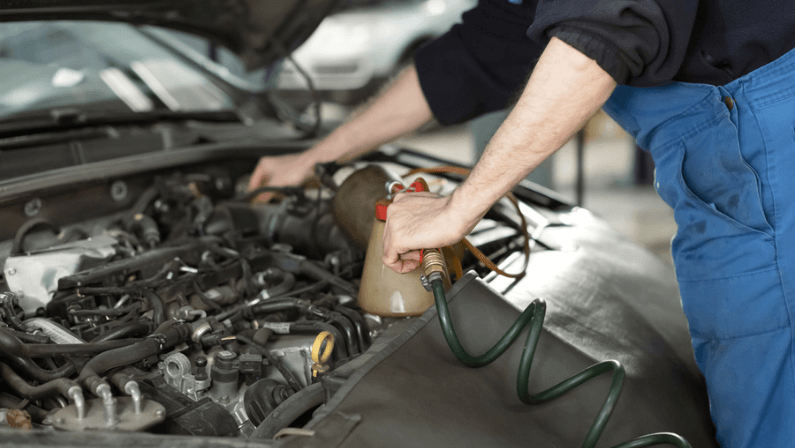
When it comes to transmission services, there’s a choice between the do-it-yourself (DIY) approach and seeking professional assistance. Some automotive enthusiasts may consider tackling basic transmission fluid changes on their own. However, it’s essential to recognize that transmission systems can be quite intricate and complex.
The decision between DIY and professional services often boils down to the extent of maintenance required. Basic tasks like changing transmission fluid might be manageable for those with mechanical aptitude. Still, comprehensive maintenance and servicing demand a higher level of expertise and specialized equipment.
Professional transmission services are advisable when it comes to in-depth maintenance. Certified technicians possess the knowledge and experience needed to assess and address complex transmission issues effectively. They have access to advanced diagnostic tools and can identify potential problems that might go unnoticed in a DIY scenario. This is especially important when your vehicle has been in a collision.
Additionally, professional services often come with warranties and guarantees, providing added peace of mind. So, while some car enthusiasts enjoy tackling minor automotive projects, it’s crucial to recognize the value of professional transmission services for comprehensive maintenance and the longevity of your vehicle.
How Can I Find a Reliable Transmission Shop in Houston?
Finding a reliable transmission repair service in Houston, TX, requires a bit of research and due diligence. Ensuring that you choose the right transmission shop can make a significant difference in the quality of service you receive.
Here are some steps to help you find a trustworthy transmission specialist in the Houston area:
1. Ask for Recommendations
Start by asking friends, family, or colleagues if they have any recommendations for a transmission shop in Houston. Personal referrals can provide valuable insights into the reputation of local transmission shops.
2. Online Reviews
Check online review platforms such as Google, Yelp, or the Better Business Bureau for reviews of transmission repair shops in Houston. Reading reviews from previous customers can give you an idea of the shop’s track record and customer satisfaction.
3. Certifications and Training
Look for transmission shops with certified technicians. Certifications from organizations like ASE (Automotive Service Excellence) indicate that the technicians have received specialized training and adhere to industry standards.
4. Visit the Shop
If possible, visit the transmission repair shop in Houston in person. Assess the cleanliness and organization of the facility. A well-maintained shop often reflects professionalism and attention to detail.
5. Ask Questions
Don’t hesitate to ask questions about the transmission repair services they offer in Houston, pricing, and warranties. A reputable transmission shop in Houston should be transparent and willing to provide clear answers.
6. Experience Matters
Consider the transmission shop’s experience in handling transmission repairs. Established transmission repair shops with years of experience often have a better understanding of various transmission issues.
7. Check for Warranties
Inquire about warranties on parts and labor for transmission repair in Houston. A transmission shop that offers warranties is confident in the quality of their work and parts.
8. Get Multiple Quotes
Don’t settle for the first transmission repair service quote you receive. Obtain estimates from multiple transmission repair shops in Houston to compare prices and services offered.
9. Customer Service
Pay attention to the customer service experience at the transmission repair shop. Friendly and helpful staff can make your overall experience with transmission repair in Houston more pleasant.
10. Check for Specializations
Some transmission repair shops in Houston specialize in certain vehicle makes or types. If you have a specific vehicle, consider transmission repair shops with expertise in that area.
By following these steps and conducting thorough research, you can increase your chances of finding a reliable transmission repair service in Houston, TX, that can address your vehicle’s transmission repair needs effectively and professionally. Remember that investing time in your search can pay off with quality transmission repair service and peace of mind.
Ensuring Your Vehicle’s Peak Performance with Expert Transmission Care
As you navigate the roadways of Houston, know that the health of your vehicle’s transmission is crucial. If you’re encountering any transmission troubles or if you’re simply looking for a trusted auto repair shop or transmission shop in Houston, visit Status Automotive & Collision or get a quote from them today.
Located in the heart of Houston, Status Automotive & Collision is your closest transmission repair shop, ready to provide top-notch service and guidance, from transmission fluid leaks to complete rebuilds. Their transmission repair services are thoroughly performed by specialists who know the ins and outs of various transmission types.

